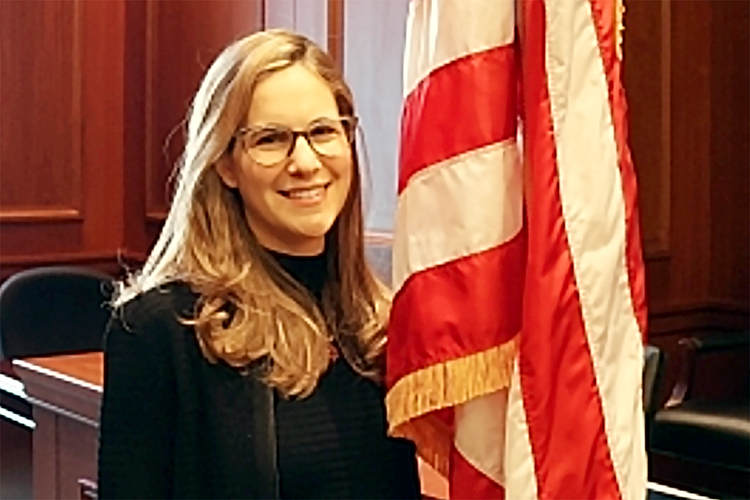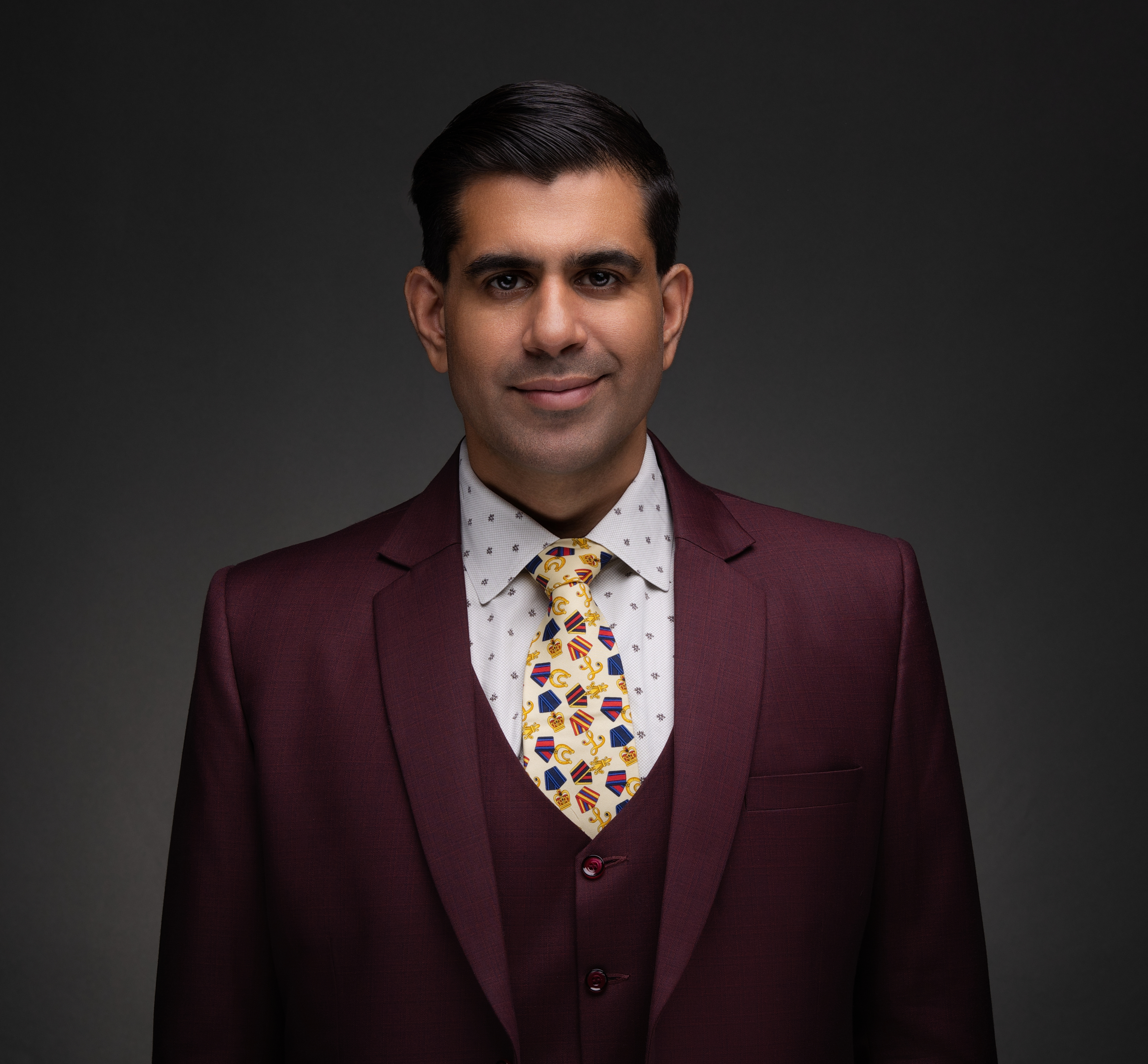In law and music, surmounting new challenges has defined Paula Boggs' career
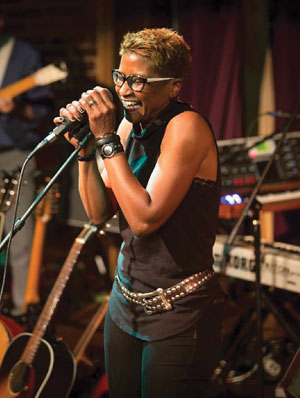
Paula E. Boggs. Photos Courtesy of Paula E. Boggs.
“Capt. Satterwhite sat me down and said, ‘You are not ready for this man’s Army.’ And that’s exactly how he put it,” remembers Boggs. ” ‘You need an edge.’ “
Satterwhite suggested that Boggs enter the Army’s Airborne School, an elite program in which soldiers learn to parachute out of airplanes. Boggs protested that she was afraid of heights. “He said, ‘No matter how miserable they make you feel—which they will—remember that it is all designed to help you,’ ” she recalls. ” ‘When they say jump from the plane, you will jump and you will land safely.’ “
He was right. Now, nearly 40 years later, Boggs says that advice was a gift—and a metaphor that has guided her career.
“Whenever I encountered something after that, I would go back to that experience and I’d say, ‘Wait a minute—I’m Airborne.’ And that would frame whatever it was and help me push through whatever that barrier might be,” says Boggs, an attorney and retired executive in Sammamish, Washington, who has served as an officer in the Army with assignments to the Pentagon and the White House, as an assistant U.S. attorney, a private practitioner, and from 2002 to 2012 as general counsel and then executive vice president of law and corporate affairs at Starbucks Corp. She has been a member of the ABA House of Delegates since 1993, and in August the House will formalize her selection to serve on the Board of Governors representing District 18 (Indiana, Maryland and Washington).
A LIFE OF NEW EXPERIENCES
Throughout her legal career, Boggs has followed a lot of difficult paths, especially as an African-American woman in jobs rarely filled by minorities. In recognition of her ground-breaking efforts, Boggs received a Spirit of Excellence Award in 2006 from the ABA Commission on Racial and Ethnic Diversity in the Profession.
“My sister, everything in her life is a learning curve that she takes on pretty quickly,” says her younger brother, N. Cornell Boggs III, who in 2012 became general counsel, senior vice president and corporate secretary for Dow Corning, a multinational corporation headquartered in Midland, Michigan. “Just about every experience, from her childhood forward, is a new experience.”
Paula Boggs also made a career leap in 2012—perhaps her most dramatic one yet—when she left Starbucks, and active law practice, to become a full-time musician. She fronts the Paula Boggs Band, which plays what she describes as “soulgrass”—a mix of bluegrass, jazz, soul and rock—and has recorded two albums.
“Now I’m someone in my 50s who is an emerging artist,” says Boggs. “So yet again I find myself in a setting where conventional wisdom would suggest this is a losing proposition. But that’s never stopped me before.”
Boggs says she has loved music since childhood. Christine Rhoads, a friend from their high school days, recalls meeting Boggs at music lessons. “She would always be writing a song, and then she’d play them,” Rhoads says. “She was part of our high school band, and she really was very passionate about it.”
Nonetheless, Boggs says she put that passion “in a box” before she reached 30. “I had said to myself, ‘You know, that was then; this is now,’ ” she says. “And the press of climbing a ladder led me to abandon it.”
DETOUR TO LAW SCHOOL
That climb started when her recently divorced mother took a job teaching at a U.S. Department of Defense school in Germany. Boggs, then 13, and her three younger siblings boarded a plane to Frankfurt without even knowing which German city they would be living in.
It was a big cultural shift. The family moved to Germany from southern Virginia, where all the public schools were still racially segregated. In Germany in the early 1970s, Cornell Boggs says, “we were more anomalies” than objects of discrimination. She remembers strangers coming up to touch her “big Angela Davis Afro” because they’d never seen anything like it.
Boggs returned to the United States to attend college and fulfill her military commitment. But despite graduating from Airborne School, she didn’t feel ready for active duty when she finished at Johns Hopkins. Her solution: Attend law school at the University of California at Berkeley.
That turned out to be a life-changing choice. After receiving her JD in 1984, Boggs expected the Army to assign her to a base; instead, she was sent to the Pentagon to work with generals and political appointees. After 2½ years, she was detailed to the White House counsel’s office to work on the Iran-Contra investigation. As a new lawyer, she helped prepare then-Vice President George H.W. Bush for a deposition.
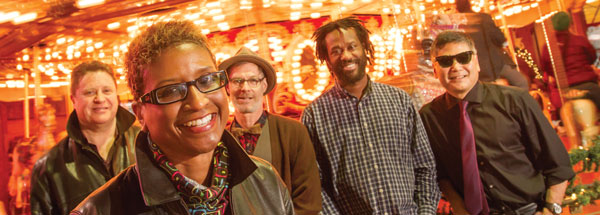
The Paula Boggs Band.
“I can honestly say I shudder when I think about the amount of opportunity I was given as someone with very little experience at the time,” Boggs says. Nevertheless, it “set the stage for everything that followed. Because when you’re given that amount of responsibility at that stage in your career, at least for me, it gave me the confidence to take risks.”
In the years that followed, Boggs’ willingness to take risks defined her career. After leaving the Army in 1988, Boggs moved to Seattle to become an assistant U.S. attorney. There, she says, her Airborne qualifications helped give her credibility in an “incredibly male-dominated environment.”
They also may have played into her next stop: a year back in Washington, D.C., as part of the Defense Department’s special investigation into the Tailhook sexual assault and harassment scandal. Back in a military environment, Boggs found herself at “one of the lowest moments of my career.” She had the power to investigate the practice of dismissing gay Americans from the military, and as a self-described closeted gay person, she had a motive. But she let her staff talk her out of it.
“I’ll never know whether the decisions I made out of fear back in the early ’90s adversely impacted somebody,” she says. “But what I do know is once I left the closet—and ironically, it was by moving to Texas and joining Dell in ‘97—I knew that was a place I would never go again.”
Between Tailhook and Dell, Boggs spent 2½ years as a partner at Preston Gates & Ellis in Seattle (now K&L Gates). At Dell, she rose through the ranks to become a vice president and senior deputy general counsel before leaving for Starbucks in 2002.
THE REAL DEAL
Boggs’ decade at Starbucks was the pinnacle of her legal career. She says she loved being an in-house attorney because it gave her a chance to be a leader. That’s why her tenure at Starbucks lasted twice as long as any of her other legal jobs.
Her friends and colleagues say Boggs is the real thing when it comes to leadership: connected, persuasive and sincerely interested in others. Michael Parham, the general counsel of Seattle-based Real Networks, asked her for advice when he applied for the job. He says she was helpful not only then, but in the years since. And he’s seen her do the same for others, including a mutual friend who was a big-firm associate when Boggs offered him some work for Dell.
Dennis W. Archer of Detroit, who served as the ABA’s first black president in 2003-04, recalls the help Boggs gave to a young female lawyer. Some of the partners in that lawyer’s firm—all white and male—pitched some business without her. Boggs asked where the young lawyer was.
Boggs suggested: ” ‘The next time you come in to talk to me about business, you might want to bring in someone who I know to be very talented,’ ” says Archer, who has served as mayor of Detroit and as a justice of the Michigan Supreme Court. “They immediately came back with this young lady to make a pitch.”
But Boggs eventually left Starbucks for her usual reason: to seek out a new challenge. “I’m one of those people who is best when I’m climbing mountains and tackling hard stuff,” she says. “And for me, the work of building something at Starbucks was done.”
The fact that Boggs made that decision in the same year that President Barack Obama was seeking re-election was not a coincidence. Boggs had always wanted to work for a presidential campaign, and she had been a passionate Obama supporter for years. During the 2012 election, she became a surrogate for the Obama campaign, speaking on his behalf at campaign events around the country.
But the other reason Boggs left the law was to pursue a long-held desire for a full-time career in music that had been building for several years.
It was an enterprise that grew out of tragedy. In 2005, her sister-in-law was killed in a car accident, leaving behind Boggs’ brother Dallas and their 2-year-old daughter. As a way to grieve, she picked up the guitar again. Reacquainting herself with the instrument turned into songwriting. Then Boggs saw an ad for a yearlong evening songwriting course. She was interested, but the life of a Fortune 500 general counsel is extremely busy. Her spouse, Randee Fox, told her to make the time.
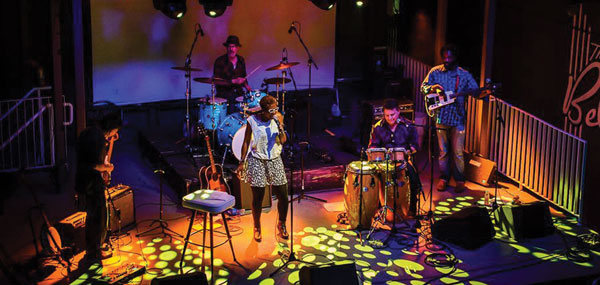
The Paula Boggs Band.
From there, it snowballed. The teacher encouraged her not to give it up, so she resolved in 2007 to do one open mic event a month. Through that, Boggs started meeting other musicians. Eventually, some of them helped form the Paula Boggs Band.
Today, the band has two CDs, A Buddha State of Mind (2010) and Carnival of Miracles, released last year. Sandy Greenbaum, the band’s drummer and music director, says they plan to start work on a third this year.
Over the band’s soulgrass instrumentation, Boggs fits lyrics that tell stories, celebrate life and address social issues. “Carnival of Miracles,” the title track of their 2015 album, was written partly in reaction to the 2012 Newtown, Connecticut, tragedy. To remix “Look Straight Ahead,” about police perceptions of young black men, she recruited rising Seattle rapper J. Pinder.
Rhoads isn’t surprised that Boggs is pursuing music—but she admires the bravery it took. “It’s really difficult to do a midlife career shift like she has,” Rhoads says. “Because that’s a huge leap, when you think about it.”
But Boggs says there are similarities between music and the law. “The band is, at the end of the day, a team, and I am the team leader,” she says. “Even though the scale is different, many of the features of leading the Starbucks law and corporate affairs organization reside in the dynamics of our band.” But, she adds with a rueful laugh, “the money was better as a lawyer.”
Boggs doesn’t see herself going back to law practice, but she still is interested in working to improve the justice system, which explains her continuing involvement in the ABA. “It’s a vehicle for me to continue to have a voice in what legal education looks like, the future of legal education, access-to-justice issues, diversity in our profession,” she says. “All of those issues that I care about are things that the ABA is hugely involved in.”
Boggs keeps a hand in the business world as well, by sitting on several corporate boards and committees. Since 2012, she and Fox have also been full-time guardians to the daughter of Boggs’ widowed brother.
And occasionally, she speaks about her diverse professional experiences and her transition to music, which she calls “the journey of my true north.” She tells audiences to stay connected to their own true norths, even if life requires other things of them.
“My message is not to abandon your obligations to pay student loans,” Boggs says, “but rather, in ways unique to you, find ways to stay in touch with that passion. Because failure to do that will lead to you being less than the whole you.”
This article originally appeared in the July 2016 issue of the ABA Journal with this headline: “Jump-Start: Surmounting new challenges has defined a career in law and music for Paula Boggs.”
Write a letter to the editor, share a story tip or update, or report an error.
